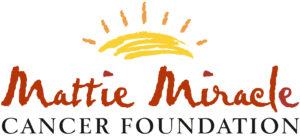
Quality Assessment of 15 International Standards on Psychological Support for Children with Cancer:
- 28 February 22
- 285 revirew
- 0 comment
 Deploying Psycho-social Assessment Tools for the First Time in Iran by MAHAK
Deploying Psycho-social Assessment Tools for the First Time in Iran by MAHAKMAHAK, along with 17 reputable organizations who specialize in the field of supporting children with cancer in different countries, has approved the 15 defined standards in the field of psycho-social care. The mentioned 15 standards have been provided by Mattie Miracle Cancer Foundation and they elaborate on the kinds of support which cancer-stricken children and their families should receive. The standards focus on psycho-social needs from the time of diagnosis to survival and even after the end of life.
Behnaz Asangari, manager of MAHAK’s Support Services Department elaborated on the aim of evaluating these 15 standards and said: “Evaluating the quality of psycho-social services provided for cancer-stricken children and their families, designing and developing performance indicators for psychologists, social workers and caregivers, and giving importance to the latest support models are among the missions of any organization offering pediatric cancer treatment and support. That is why MAHAK is now named along with 17 other international organizations which have endorsed the psychological standards of supporting children suffering from cancer such as American Academy of Child & Adolescent Psychiatry (AACAP), The Society of Pediatric Psychology (SPP), The Association of Pediatric Hematology Oncology Educational Specialists (APHOES), The Association of Pediatric Oncology Social Workers (APOSW), and The Children’s Cause for Cancer Advocacy (CCCA), etc.”
Utilizing a Novel International Tool for Providing Better Psychological Services for Children with Cancer
The first standard of the 15 mentioned standards is an accurate and consistent psycho-social assessment and evaluation. While reviewing up-to-date scientific resources in this regard, MAHAK’s Support Services Department identified the need for an assessment tool called “The Psychosocial Assessment Tool (PAT)” in line with improving the quality of services through implementation of international standards. Asangari continued: “Nemours Children’s Health System is the author of this test which is short questionnaires that are used to assess and avert psychological and social risks in the field of children’s mental health. Using this tool, families and patients can be comprehensively assessed psychosocially, and issues such as family structure and social support, family problems, child problems stressors and problems of the patient’s siblings can be identified.” This tool is officially used in pediatric cancer treatment in 30 countries and MAHAK has conducted the necessary procedures for the translation and standardization of PAT for the first time in Iran.
She added: “In brief, other standards include control of neuropsychological deficits, annual monitoring of psychosocial functioning, psychological and supportive interventions, risk assessment of financial problems during cancer treatment, early and ongoing assessment of parental behavioral needs, and education.” Moreover, “Advising parents and others about communicating with the patient, providing information about aggressive interventions, providing opportunities for social interaction during and after treatment, providing appropriate support services to siblings of children with cancer, and support for re-entering school are also controlled in this assessment. In addition, informing and educating the school staff about cancer and its treatment, regular follow-up of the treatment process, introduction of palliative care related concepts, and communication with the family after the decease of the child are among these standards. These are all measures which have been assessed and updated by MAHAK to provide the best possible support services to cancer-stricken children during its 30 years of existence. “
“We have realized over the years that medications do not suffice in treatment of cancer-stricken children.” Asangari concluded. She focused on the MAHAK’s efforts to improve the quality of life for cancer-stricken children to speed up their recovery. She stated: “Psychological care is as important as medication protocols in children’s recovery. We have tried to ensure that patients and families receive intensive psychological care in accordance with international standards from the time their child is diagnosed, in addition to receiving medical care. In the event of the patient’s death, this service will continue until the family members reach the desired level of acceptance and return to the life condition they had before their child’s death. All these measures are taken with the aim of continuation of treatment for cancer-stricken children in any situation. With hope, we look forward to eradication of cancer across the globe.”
It should be noted that in November 2009, Mattie Miracle Foundation was established just two months before Peter and Victoria Brown lost their only child (Matthew who was 7 years old) due to Osteosarcoma. They soon realized that, although there were medical standards in pediatric oncology, there were no standards for providing psychosocial services to cancer-stricken children and their families anywhere in the world. Therefore, Mattie Miracle, Foundation launched 3 six-month projects with the assistance of pediatric oncologists, clinical psychologists, and adept researchers. Finally, the foundation defined 15 standards based on numerous scientific studies, solid scientific evidence and analyzing more than 18,000 internationally published articles in the field of psychosocial care for children with cancer and their families.
